The Importance of Protein for Recovery in Older Adults
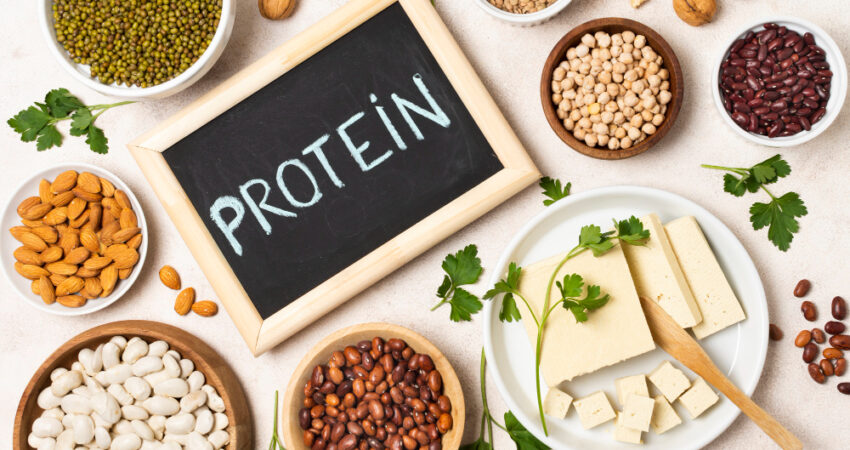
As we age, taking care of our bodies becomes even more important. One key factor that often gets overlooked is protein. Protein is a building block for our muscles, tissues, and overall health. For older adults, protein plays a crucial role in maintaining strength, aiding recovery, and improving quality of life.
Let’s explore whey protein matters so much and how it helps older adults stay healthy and active.
Why Protein is Important for Older Adults
Protein is essential for everyone, but its importance increases with age. Here’s why:
Muscle Maintenance
As we grow older, we naturally lose muscle mass. This is called sarcopenia.
Protein helps slow down muscle loss and keeps muscles strong.
Strong muscles are important for balance, preventing falls, and staying active.
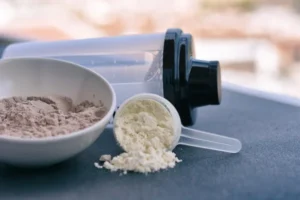
Faster Recovery
Older adults often take longer to recover from injuries, surgeries, or illnesses.
Protein speeds up the healing process by helping repair damaged tissues and cells.
It also reduces the risk of complications during recovery.
Bone Health
Protein supports healthy bones by working together with calcium and vitamin D.
Strong bones help prevent fractures and improve mobility.
Boosts Immune System
Protein helps produce antibodies and other components that fight infections.
A strong immune system is especially important as we age to protect against diseases.
How Much Protein Do Older Adults Need?
Getting the right amount of protein every day is key.
Experts recommend 1 to 1.2 grams of protein per kilogram of body weight for older adults.
(For example, if you weigh 60 kg, you need about 60–72 grams of protein daily.)
Those recovering from surgery or illness may need even more.
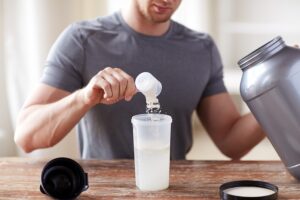
Best Sources of Protein for Older Adults
Eating a variety of protein-rich foods is the best way to meet your needs. Here are some excellent options:
Animal-Based Proteins
Eggs: Easy to digest and packed with protein.
Chicken and Fish: Lean meats like chicken and omega-3-rich fish are great choices.
Milk, Cheese, and Yogurt: Dairy products provide protein and calcium.
Lean Red Meat: Good for iron and protein, but eat in moderation.
Plant-Based Proteins
Beans and Lentils: Affordable, nutritious, and rich in protein.
Tofu and Tempeh: Great options for vegetarians or those looking to reduce meat.
Nuts and Seeds: Snack on almonds, peanuts, or sunflower seeds for a protein boost.
Whole Grains: Quinoa and oats offer protein along with other nutrients.

When to Eat Protein
Timing your protein intake can make a big difference.
Spread It Out
Don’t eat all your protein in one meal.
Spread it across breakfast, lunch, and dinner to help your body use it effectively.
Post-Exercise
After light exercise or a walk, eat a protein-rich snack to help your muscles recover.
Before Bed
A small protein snack before bed, like a glass of milk, can help repair muscles overnight.
Challenges Older Adults Face
Sometimes, older adults struggle to get enough protein. Here’s why and how to overcome these issues:
Loss of Appetite
Aging can reduce hunger, making it hard to eat enough.
Solution: Include small, high-protein snacks like nuts, yogurt, or boiled eggs.
Difficulty Chewing
Dental problems may make it hard to eat tough protein sources like meat.
Solution: Opt for softer proteins like fish, scrambled eggs, or lentil soup.
Digestive Issues
Some older adults may find it hard to digest certain proteins.
Solution: Choose easily digestible options like Greek yogurt or smoothies.
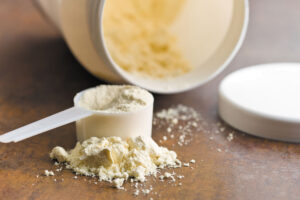
Budget Constraints
High-protein foods can sometimes be expensive.
Solution: Affordable options like beans, lentils, and eggs can meet protein needs without straining the budget.
Protein Supplements: Do You Need Them?
For those who cannot meet their protein needs through food alone, supplements can help.
Protein Powders: Whey or plant-based powders can be added to smoothies or milk.
Meal Replacement Drinks: Specially designed for seniors, these can provide balanced nutrition.
Check with a Doctor: Always consult your doctor before starting any supplement.
Benefits of Protein for Older Adults
Adding enough protein to your diet can bring many benefits, including:
Improved muscle strength and reduced risk of falls.
Faster recovery from injuries and illnesses.
Better bone health and fewer fractures.
Enhanced energy levels for daily activities.
Stronger immune system to fight infections.
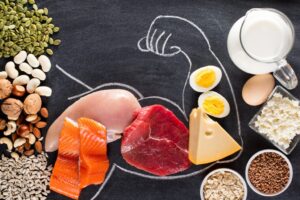
Tips to Add More Protein to Your Diet
Here are some practical ways to include more protein in your meals:
Start Your Day with Eggs: Add boiled, scrambled, or poached eggs to breakfast.
Add Beans to Soups and Salads: They are easy to cook and full of protein.
Snack on Nuts and Seeds: Keep a small bag of almonds or peanuts handy.
Make Smoothies: Blend milk, yogurt, and fruits with protein powder for a quick meal.
Cook with Dairy: Use cheese or yogurt in dishes like pasta, sandwiches, or curry.
Protein is not just for bodybuilders or athletes—it’s for everyone, especially older adults. By eating enough protein every day, you can stay strong, recover faster, and enjoy a more active life.
Take small steps to include more protein-rich foods in your diet, and don’t hesitate to ask your doctor or nutritionist for advice. Remember, it’s never too late to care for your health and enjoy the golden years to the fullest.
